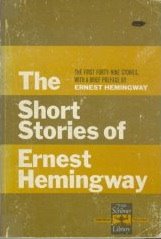 I put off reading Bottomfeeder for the better part of a year. My wife heard the author, Taras Grescoe, explain the book in an interview and recommended the book to me. I bought it, but decided I wasn't ready to read it yet because I wasn't ready to give up the seafood I love so much...
I put off reading Bottomfeeder for the better part of a year. My wife heard the author, Taras Grescoe, explain the book in an interview and recommended the book to me. I bought it, but decided I wasn't ready to read it yet because I wasn't ready to give up the seafood I love so much...And one day, a couple weeks ago, I decided that the time had come. It was now or never. I must learn the woes of the ocean, and live by the code or rot in fish bowels.
I must say, I was pleasantly surprised. I don't have to give up a lot of the seafood I do like. Crabs, calamari, and lobster are still okay to eat, as long as you know where they're coming from, and there are now several other types of fish I can't wait to try (mackerel, oysters, and mullet). I'm also about to rediscover sardines, a fish I remember well from my childhood, eating out of a can filled with delicous mustard sauce (sardines, anchovettas, and a few other small species of fish are actually one of the few sustainable fisheries still existing in this world).
The book itself took some getting used to. With chapters divided by the places Grescoe traveled to to try a local specialty of fish, the book started off feeling like a gastronomic travel guide written by a pessimist. Nearly every major fish stock in most oceans and seas is overfished, and pollution and human contaminants, along with a major rise in fish farms, are contributing to the dwindling stocks of wild fish (that, obviously, are much better for you than their farmed counterparts). The first half of the book, for me, felt like a depressing novel that I didn't want to read anymore. And then, it just got better. Grescoe continued on his journey and visited some places I have a personal attachment to (British Colombia) and researched and ate some seafood I've also always been interested in: shrimp, salmon, cod, tuna, and now, sardines.
I'd recommend reading parts of this book (the chapters on small fish, shrimp, salmon, and the appendix), but by no stretch of the imagination do you need to read the whole thing unless you love reading about food. I love eating food, and like to spend my time doing that rather than delving into the sensations of said wonders...
If you're a seafood eater and you happen upon this post, I must put this out there because not enough people know it: don't eat farmed salmon. Farmed salmon are spreading disease to wild fish stocks and they're terrribly bad for you, filled with antibiotics, carcinogens, and artificial food coloring to make the meat red like their wild counterparts. Also, be wary of the shrimp you eat. If it's imported, it's probably affecting entire villages of people as well as devastating mangrove forests.
Eat sardines. Sardines purchased at Trader Joe's are sustainably fished (I checked). And if you eat tuna, make sure you get the "chunk light" tuna, which is a type of tuna known as skipjack that is not suffering like the bluefin tuna or high in mercury like regular tuna.
And this website's a great one for seafood choices: www.seafoodwatch.org. I've been using it for a while and it really helps one navigate the fish aisle and menu's at restaurants. There are too many restaurants that pay no attention to the state of our oceans, but if we don't wise up soon, all that may be left, according to Grescoe, are Jellyfish salads.
Happy eating of fish!


No comments:
Post a Comment